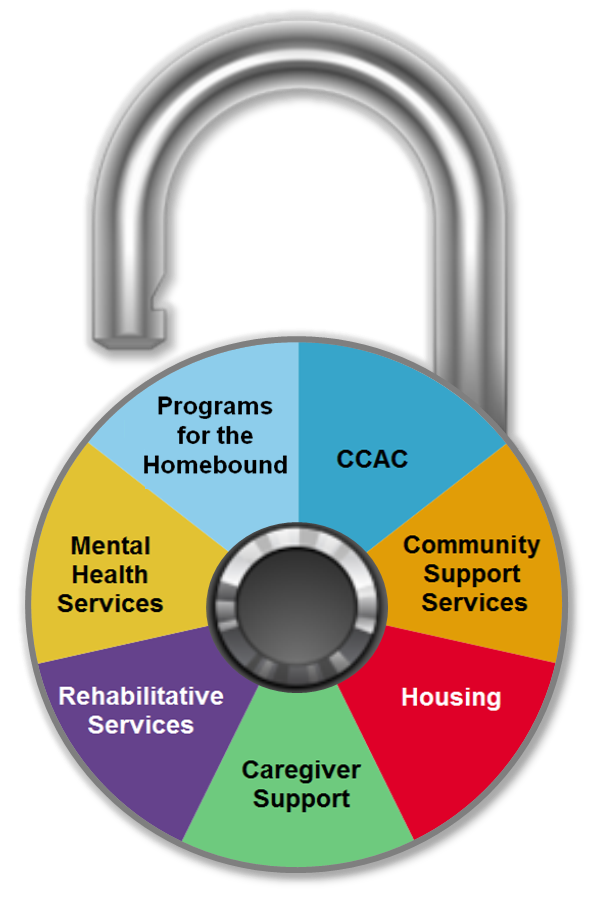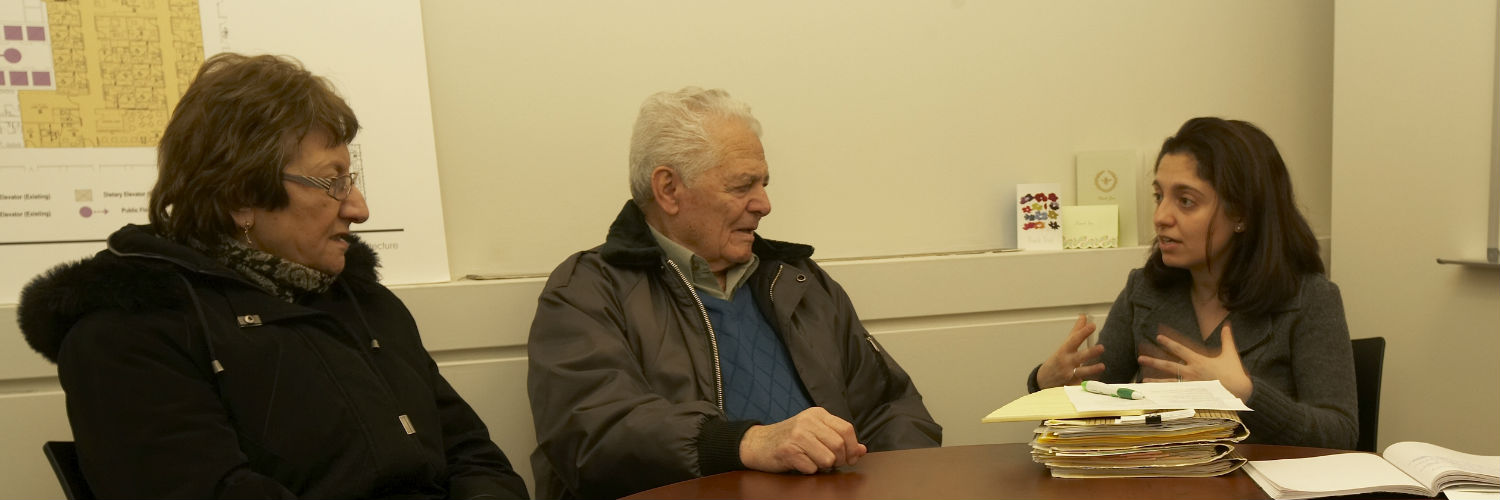In the home where a high-anxiety family meeting is taking place, an older patient is bedbound and incontinent due to their advanced chronic illness, and the family cannot cope with meeting the care needs of their loved one anymore. Family members are burnt out and ready to explore nursing home options immediately.
Across town, another patient is being discharged from hospital tomorrow into a six-week respite care placement as he cannot return back to his home. He has suffered a terrible fall, has a diagnosis of dementia, no family members involved in his care, and no fixed address.
As Social Workers, we see patients in situations just like these every day and we work with them and their respective caregivers, if available, to help them navigate their health, home and community care options. With our rapidly ageing population, we will need even more health professionals who are able to navigate the growing array of home- and community-based services that can support older patients to remain active, engaged and independent.
In fact, now more than ever, we are seeing older patients and their caregivers experiencing highly complex situations which often put them at risk for admissions to nursing homes. However, just like everything else, waitlists and other systemic barriers make it harder for them to be placed into long-term care (LTC) or nursing homes and the numbers of these cases are increasing exponentially. We know that the older population is Canada’s fastest growing age group. In fact, by 2030, Canada’s population aged 65 and over will double and adults aged 85 and over will quadruple from what it is today. However, by 2020, it is currently estimated that there will be the demand for 8,000 additional LTC beds, even though the Ontario Ministry of Health and Long-Term Care (MOHLTC) is committed to adding no additional beds. On the flip side, we are increasingly meeting older adults who prefer to live at home with independence, autonomy, and overall well-being. Indeed, most older Canadians are even wishing to die in their own homes.
Based on these findings, the MOHLTC is increasingly funding initiatives to support older adults to age in place. Health care is increasingly moving towards the “hospital at home” philosophy which allows for an increasingly wide array of medical, functional and social services to be brought into the home that would never have been considered even a decade ago. Research also indicates that ageing at home is more cost effective and Canada’s older adults are happier to be at home. So how do we keep people at home if they are essentially living at risk? Caring for all older adults needs to include a ‘circle of care’ approach consisting of family members, caregivers, friends, and their allied health professionals.
That’s where we come in. In addition to being Social Workers, we’re also both working as Sinai Health System’s first Care Navigators, a unique role that has been designed to ensure its patients experience continuity of care across the health care continuum, whether it be when a person is starting to get ready to leave the hospital, or another person trying to avoid the hospital in the first place as they struggle with various issues in trying to effectively navigate their health, home and community care options. As community-based Social Work Care Navigators that work across a variety of settings, we get to support all of our clients when and where our help is needed most.
In our view, the secret to living independently, safely and happily at home depends on developing the right mix – or combination – of resources and successfully being able to navigate the health care system. We, as community Social Workers, use the analogy of the “Combination Lock” that we developed to depict the right combination of resources or formula that may positively increase an older person’s ability to stay healthy and independent in the place of their choice. This Combination Lock consists of various facets. Naturally, there exist inherent challenges and limitations but the ‘right’ formula or combination ‘unlocks’ viable and realistic care plans that increase, foster and optimize sustainability at home. The facets of this Combination Lock provide an array of various resources which may be equated to a kaleidoscope of nuances and options.
The Combination Lock consists of facets that include the Role of Community Care Access Centres (CCACs) that provides services such as access to allied health professionals (i.e., Occupational Therapy, Nursing, Physiotherapy), provision of Personal Support Worker (PSW) Services and the management of Long-Term Care (LTC) applications. In addition, the Role of Community Support Services (i.e., Meals on Wheels, Transportation, Social and Adult Day Programs, Friendly Visiting, and Private Home Care) is essential to enhancing ageing in place. The importance of appropriate and stable Housing (i.e., Subsidized Housing, Retirement Homes, Supportive Housing and Assisted Living Options and Accessibility Modifications) is included as a domain to enhance independent living. Caregiver Supports (i.e., Caregiver Counselling, Training and Support Groups, Respite Home Care Services and Short Stay Respite Beds) are equally pertinent in increasing the sustainability of allowing more people to reside at home. In addition, Rehabilitative Services (i.e., Community-Based Falls Clinics and Exercise Programs, Home-based, Outpatient and Inpatient Rehabilitation and Convalescent Care) are included as a facet to enhance safety at home. Programs for the Homebound (i.e., Home-Based Primary and Palliative Care Programs, and Community Outreach Programs) is an important facet to enhance the sustainability of remaining at home for patients who are homebound. Lastly, Community-Based Mental Health Services (i.e., Psychogeriatric or Behavioural Support Outreach Teams) are also included in the Combination Lock as an integral facet to foster independence at home for older adults living with mental health issues.
Through working in these unique roles, our clinical experiences inform us that navigation of the health care system and the subsequent development of robust care plans in collaboration with family members, caregivers and allied health professionals are key factors in fostering independence and improving a person’s quality of life. However, it is of paramount importance that all of our clients’ needs and preferences are at the heart of their care plans. While for clients living with dementias, the role of their caregivers often becomes instrumental in providing advocacy and insight into the construction of a durable care plan as well.

Navigation of our complex health care system may seem to be a daunting and impossible task for many. However, with the right guidance and support that Social Workers can provide, it becomes much more possible to develop the right combination of resources and community supports that will be integral to supporting both clients and their caregivers towards ageing in place. After all, for most of us, there really is “no place like home” and there is no better place to support a person to remain healthy and independent whenever possible.
Date modified: 2017-04-26



